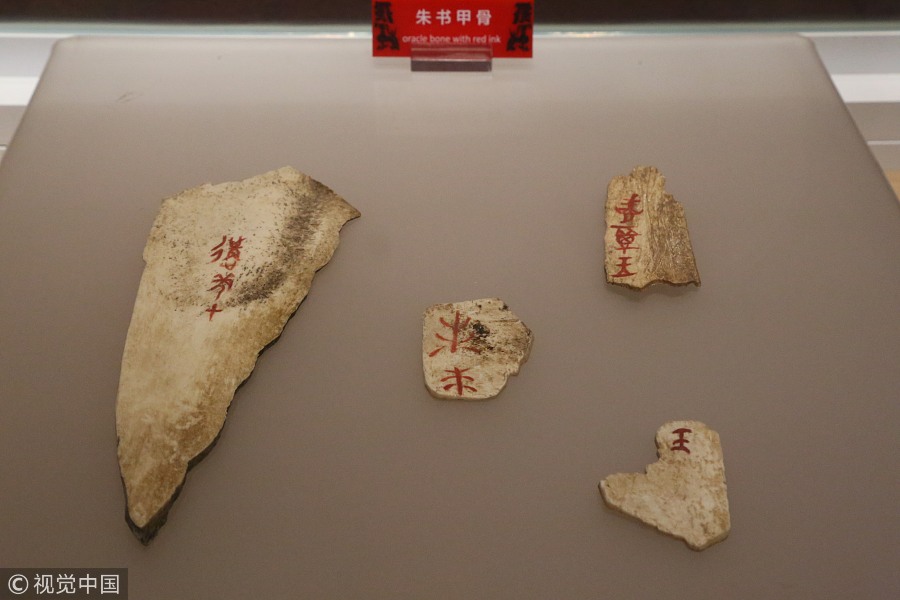Experts weigh on on oracle-bone inscriptions
By Zhang Zhouxiang | chinadaily.com.cn | Updated: 2017-12-26 17:32

On Tuesday, domestic authorities announced that Chinese oracle-bone inscriptions — the earliest written characters found in China’s archeological sites — have been included in the UNESCO Memory of the World Register, announced by UNESCO on its official website Oct 30.
Why oracle-bone inscriptions? What makes them so special? Two experts shared their views with China Daily’s Zhang Zhouxiang:
“Oracle-bone inscriptions”, or carving meaningful characters on turtle backs or animal bones, was not something that belonged only to ancient China, because archeological records show many prehistoric peoples had done so.
There are three main qualities that grant Chinese oracle-bone inscriptions unique value. First, they played an irreplaceable role in the building of Chinese written language. Most of the Chinese oracle-bone inscriptions date back to the Shang Dynasty (c.1600-1046 BC). Written Chinese language originated earlier than that, but Chinese oracle-bone inscriptions during that period defined the basic structure of Chinese characters, their component parts, as well as their basic units, namely one character carrying one pronunciation and expressing one single meaning. That’s fundamentally different from Latin languages, in which each single word, with single or multiple syllables, carries one meaning.
Second, Chinese oracle-bone inscriptions are precious historical records of the Shang Dynasty. Most of them were used by the royal court of Shang to practice augury, and the Shang royal court almost did augury for every major decision. So from Chinese oracle-bone inscriptions we could get to know one part of history before books emerged.
Third, Chinese oracle-bone inscription producers were senior intellectuals at their time, who were of high artistic taste, therefore their products were of high artistic value. Actually, Chinese is one of the few languages to have mature calligraphic arts, which in fact could date back to Chinese oracle-bone inscriptions.
Currently only a small percentage of the about 10,000 characters contained in Chinese oracle-bone inscriptions have been successfully interpreted and we need to sharpen our knowledge to know the rest.
Zhou Xiaolu, head of China Institute of Archeology and Art, affiliated with Xi’an Academy of Fine Arts
























